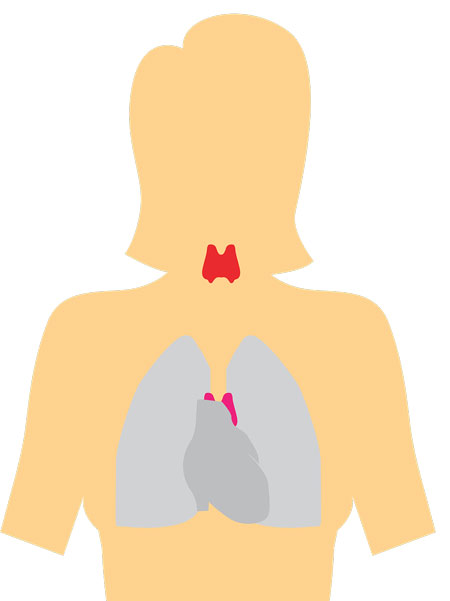The thyroid gland plays a major role in regulating all of the body’s functions. It controls metabolism by way of hormone regulation. Thyroid disease implies that your body is unable to function at optimal speed or in some cases too fast.
If your body has too much thyroid hormones being produced and thus a fast metabolism you may have a thyroid disorder called hyperthyroidism. Symptoms relative to a hyperactive thyroid disorder include a rapid heartbeat, tremors, anxiety, irritability, sweating, loss-of-appetite and weight loss or insomnia as well as infertility issues.
If your body has too little of thyroid hormones being produced and thus a slow metabolism, you may have a thyroid disorder called hypothyroidism. Symptoms relative to a hypoactive thyroid disorder include feeling tired, weak, cold, increased appetite or weight gain, constipation, dry skin, brittle hair and even depression and again also infertility issues. It is important to remember that the thyroid gland as mentioned above regulates all of the body’s functions. A thyroid disorder that is uncontrolled can present in other systems of the body for example the cardiovascular system which can lead to heart disease.
Thyroid disorders are diagnosed via a combination of a physical exam for the assessment of clinical signs and symptoms, including lab work-up. Once a diagnosis is confirmed an etiology (cause) may be identified by ordering a thyroid ultrasound or quite possibly a FNA (fine-needle-aspiration) or biopsy. Thyroid disorders can be treated and managed in some cases with medication and monitoring. Other times it involves a partial or complete removal of the thyroid gland. Medicinal therapy involves finding and maintaining the proper dose of medication relative to your symptoms and respective labs. With thyroid disorders medication dose adjustments are made as necessary until euthyroidism (normal thyroid function) is reached, followed by periodic monitoring. This treatment process is typically life-long except in cases of viral causes or thyroid disorders in remission.
Thyroid disorders are common and according to the CDC, 20 million of Americans have some form of thyroid disease. There is a higher occurrence in women and it is estimated that approximately 60% of Americans are unaware of their disease. There is not much by way of thyroid disorder prevention however there are risk factors that are examined and reviewed during routine office visits for early diagnosis and treatment.

